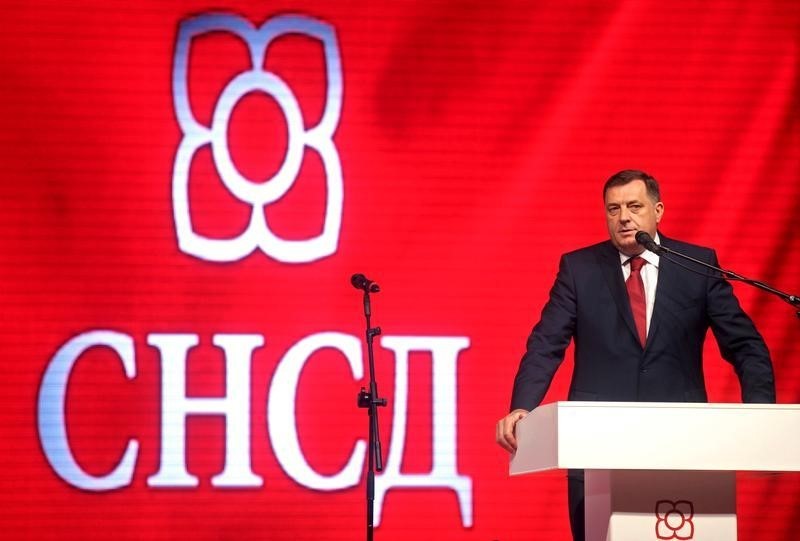By Gordana Katana
BANJA LUKA, Bosnia (Reuters) - Opposition parties in Bosnia's autonomous Serb Republic called on Monday on its powerful president, Milorad Dodik, to quit and call early elections to end political infighting.
The opposition has long accused Dodik, a staunch advocate of secession from Bosnia, and his associates in the government of crime and corruption.
"The Alliance for Change call on the President of Republika Srpska (RS) Milorad Dodik to resign and call early parliamentary and presidential elections," said Mladen Bosic, who heads the SDS party, the largest in the five-party opposition alliance.
The parties also threatened to boycott parliament or even hold street protests unless the region's parliament scraps a plan to allow for the prosecution of ethnic Serb deputies in the national parliament who are considered to be voting there against the interests of the Serb Republic.
"The opposition regards Dodik as the main generator of deep divisions in the Republika Srpska and see early elections as the only solution," said Milenko Mihajlica of the Serb Radical Party RS. He dismissed any possibility of violence during protests that may be organised in future.
The 1995 peace accords that ended Bosnia's 1992-95 war split the Balkan country along ethnic lines into two highly autonomous regions, a Serb-dominated Serb Republic and a federation of Muslim Bosniaks and Catholic Croats. The two are linked by a weak central government.
Dodik's SNSD party, which had been the dominant Bosnian Serb party at regional and national levels since 2006, saw its popularity slide in general election last year and was excluded from a ruling coalition at the national level.
Its place there was taken by the Alliance for Change, which Dodik has repeatedly accused of betraying Serb interests and insisted that its deputies cannot take any decisions or vote without getting a green light from the region's lawmakers.
Dodik said on Monday he would not resign but was ready to call early elections if they also included the state presidency and national parliament, an option unlikely to happen.
"My mandate belongs to the people and Republika Srpska," Dodik told a news conference. "I do my job with responsibility in accordance to the constitution and don't intend to retreat before people who don't want a dialogue."
Dodik was a driving force behind the regional parliament's vote in July to hold a referendum on the authority of the state court over Serbs, a move that the West sees as an open challenge to the integrity of the Bosnian state.

The decision on when the referendum should take place has not yet been made.